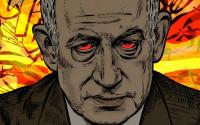Common Dreams / Published on Sunday, June 25, 2006 by the Agence France Presse
US administration officials chose to ignore a CIA officer's warnings that an Iraqi defector's claims of purported biological labs made by Iraq for germ warfare were unproven.
 CIA Officer Claims US Ignored Warnings About WMD Errors CIA Officer Claims US Ignored Warnings About WMD Errors |
"The CIA officer took his pen," he recounted in an interview, "and crossed out the whole paragraph" in a statement to be presented by then secretary of state Colin Powell to the United Nations.
"A few days later, the lines were back in the speech. Powell stood before the UN Security Council on February 5 (2003) and said: 'We have first-hand descriptions of biological weapons factories on wheels and on rails.'"
Drumheller was stunned, the newspaper reported.
"We thought we had taken care of the problem," it quoted the man who was the CIA's European operations chief before retiring last year, as saying. "But I turn on the television and there it was, again."
The newspaper said that although the US government had "acknowledged intelligence failures over Iraqi weapons claims that led to war", new accounts by former insiders such as Drumheller shed light on "one of the most spectacular failures of all".
This was, it added: "How US intelligence agencies were eagerly drawn in by reports about a troubled defector's claims of secret germ factories in the Iraqi desert. The mobile labs were never found."
Drumheller "described in extensive interviews repeated attempts to alert top CIA officials to problems with the defector, code-named Curveball, in the days before the Powell speech," The Post said.
Yet "the warnings triggered debates within the CIA but ultimately made no visible impact at the top, current and former intelligence officials said," it added.
"In briefing Powell before his UN speech, George Tenet, then the CIA director, personally vouched for the accuracy of the mobile-lab claim, according to participants in the briefing.
"Tenet now says he did not learn of the problems with Curveball until much later and that he received no warnings from Drumheller or anyone else," the Post said.
In late 2002, the Bush administration began scouring intelligence files for reports of Iraqi weapons threats, the newspaper went on.
"Drumheller was asked to press a counterpart from a European intelligence agency for direct access to Curveball," who was living in Germany and described himself as a chemical engineer.
"Other officials confirmed that it was the German intelligence service," the Post said.
"The German official declined but then offered a startlingly candid assessment," Drumheller recalled.
"'He said, 'I think the guy is a fabricator,'" Drumheller was quoted as saying, declining to name the official.
"He said: 'We also think he has psychological problems. We could never validate his reports.'"
Although "no American had ever interviewed Curveball, analysts with the CIA's Center for Weapons Intelligence, Nonproliferation and Arms Control believed the informant's technical descriptions were too detailed to be fabrications," the Post said.
It was Germany's intelligence agency BND that passed along Curveball's stories to Washington, the report said.
"Over time, the informant generated more than 100 intelligence reports on secret Iraqi weapons programs -- the only such reports from an informant claiming to have visited and worked in mobile labs. Other informants, also later discredited, had claimed indirect knowledge of mobile labs," the report said.






